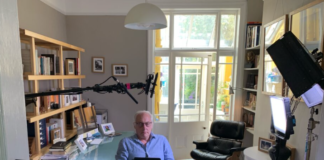- Rocket man - 2nd March 2026
- Death wish two - 2nd March 2026
- News to celebrate! - 1st March 2026
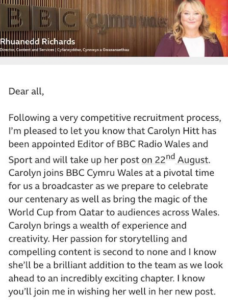 Controversial BBC Wales has stressed the importance of a senior employee appointment who joins as they “bring the magic of the World Cup from Qatar”, although it may be problematic for her to go to the country as homosexuality is illegal there, but the executive is herself gay – she has also publicly declared her support for a political party and contentious cause, yet will broadcast an impartial news service.
Controversial BBC Wales has stressed the importance of a senior employee appointment who joins as they “bring the magic of the World Cup from Qatar”, although it may be problematic for her to go to the country as homosexuality is illegal there, but the executive is herself gay – she has also publicly declared her support for a political party and contentious cause, yet will broadcast an impartial news service.
Headline-grabbing ‘Director of Content and Services’ Rhuanedd Richards, says of the ‘Editor of BBC Radio Wales and Sport’ Carolyn Hitt, that she will be a “brilliant addition to the team” (and takes up her new role next month), but fails to mention that homosexuality is unlawful in Qatar, with a punishment of up to three years in prison, and it carries the possibility of the death penalty for Muslims under sharia law, or that she has said on Twitter, she votes for the Welsh nationalist party Plaid Cymru (PC).
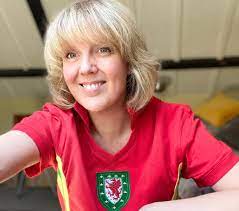
Laws against being gay are unlikely to be attractive to Ms Hitt, whose partner is another woman (a prominent politician in Wales).
In announcing this “brilliant addition to the team”, none of the recent worrying headlines about Qatar were touched on.
BBC Cymru Wales (BBC CW) merely reported elsewhere: “Head of Welsh football Noel Mooney said the team would use the event (the World Cup) as a ‘platform’ to discuss human rights in Qatar, where homosexuality is illegal”.

There are also prevailing cultural mores in the desert emirate, which view homosexuality, and cross-dressing, negatively.
It’s been reported that a number of Wales football fans do not accept that the World Cup in Qatar is “magic”, and they have pledged to boycott it, despite their joy at the Welsh team qualifying for the first time in 64 years.
The Qatar government does not recognise same-sex marriage or civil partnerships, nor does it allow people in Qatar to campaign for Lesbian, Gay, Bisexual and Transgender (LGBT) rights.
The academic and writer Laura McAllister tweeted (with a link to her article in the Western Mail [WM]) that there was “…no time to waste if we’re (Wales is) to ensure sustainable benefits from (Hashtag) Qatar 2022“.
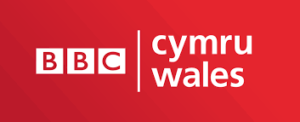
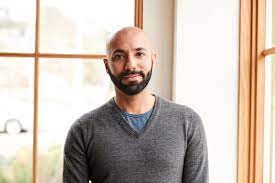
This is highly-ironic as she (like Ms Hitt) is also gay, and Professor McAllister (with her partner) has a child, which would, of course, be legally proscribed in the country hosting a contest that she exhorts Wales “to ensure sustainable benefits from”.
They could both be particularly interested in the fact that, earlier this year, under the headline ‘DOCTOR BECOMES ‘FIRST’ QATARI TO PUBLICLY COME OUT AS GAY’ The Independent reported that Nas Mohammed said: “I walked into a gay club and I knew I was 100 per cent gay. I went home and cried – I thought my life is in crisis. I thought I was going to go to hell, my life is damned”.
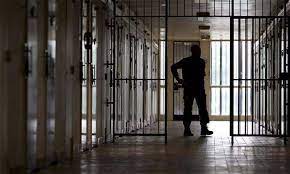
One leading Welsh football broadcaster, told us: “A producer I work with is gay and he can’t go!”
Other issues about Qatar are also a source of concern, and could worry Ms Hitt.
Media freedom there is constrained (and as Ms Hitt is a newspaper columnist this fact may be alarming).
Reporters Without Borders displays Qatar’s index rank as 119th out of 180, declaring: “Several journalists have been arrested and jailed, or even deported – in most cases for taking too close an interest in the working conditions of immigrant workers (many working on stadiums for the World Cup)“.

The monitoring organisation Freedom House said two years ago: “Both print and broadcast media are influenced by leading families and subject to state censorship…In January 2020, an amendment to the penal code made the sharing or publication of ‘false news’ punishable with up to five years in prison or a maximum fine of 100,000 riyals ($27,500)”.
Other disturbing reports include among them, the accusation that large amounts of money changed hands before the World Cup was awarded in the first place.

The Sunday Times revealed that the tiny desert state had secretly offered £400 million to the world football governing body, FIFA, just 21 days before the decision was announced to hold this year’s contest there.
The paper also showed last Sunday how the behaviour of senior figures has been less than admirable, and this, too, might cause anxiety to Ms Hitt.
It has emerged that The Prince of Wales, Prince Charles accepted a suitcase containing €1 million in cash from Sheikh Hamad bin Jassim bin Jaber Al Thani, the former Prime Minister of Qatar, which was one of three payments totalling €3 million.

Fears of terrorism there are very real, as well, with Qatar being the subject of a warning from the UK Government to travellers going to the country, and it holds pariah status among many other nations (which were also conspicuously absent from the BBC Cymru Wales [BBC CW] announcement of Ms Hitt’s appointment).
The UK Government told potential travellers to Qatar that they faced major risks, and it stated on its advice website: “Terrorists are likely to try to carry out attacks in Qatar“.
 Meanwhile, Saudi Arabia is one of several countries around the world which has cut off diplomatic relations with the state.
Meanwhile, Saudi Arabia is one of several countries around the world which has cut off diplomatic relations with the state.
Saudi Arabia, the United Arab Emirates (UAE) and Bahrain, severed relations with Qatar on June 5 2017.
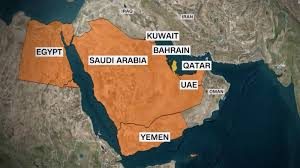
They also gave Qatari citizens 14 days to leave their territory and banned their own citizens from travelling to, or residing in, Qatar.
The emirate had refused to comply with an initial list of 13 demands, saying it would not agree to any measures that threatened its sovereignty or violated international law. But it was told by its neighbours that they wanted it to accept six broad principles on combating extremism and terrorism.
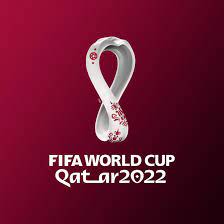

The country has also concerned its neighbours with its connections to extremist groups. Qatar acknowledges that it has provided assistance to some of them, such as the Muslim Brotherhood (MB), but denies aiding militant organisations linked to al-Qaeda or so-called Islamic State (IS).
News that the state airline, Qatar Airways (QA) was coming to Cardiff Airport (CA) (the service has now been ‘postponed’), raised eyebrows too.
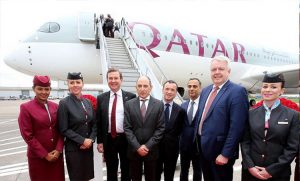
The flight to Qatar’s capital Doha from CA was hugely-praised in the mainstream media (as with the qualification by Wales for the World Cup there), despite the fact that the troubled desert emirate had (even then) often hit the headlines.
The airport’s Chief Commercial Officer Spencer Birns stated baldly: “Qatar Airways (QA) are committed to the route (with the capital Doha) and we want them to be successful”. Mr Birns appeared to be optimistic, not simply about the link-up with a state airline, where the country rules homosexuality illegal, but the prospects for his airport generally, even though recent figures were less than encouraging.

He told a committee at the Welsh Parliament/Senedd Cymru (WP/SC): “There was more traffic handling at other airports than there was at Cardiff, but then don’t forget we’ve been in a position in Wales where, and quite rightly so, the government have been so heavily focused on the health of the nation, that actually encouraging people not to travel overseas has been a major factor in the Welsh government’s approach”.

Extraordinary statements like these came as figures showed that just 6,077 passengers had used his airport in one month during the pandemic, although this was viewed as a ‘success’ by CA (from which, presumably, many Welsh football fans might fly) as well, because it represented a big increase on the previous year.
They were also set against other remarkable comments. The Chairman of CA at the time, Roger Lewis described as “transformational” the association with an airline from a state with such a dubious record on civil liberties, and which has been accused, now, of offering enormous payments before being given the World Cup to host.
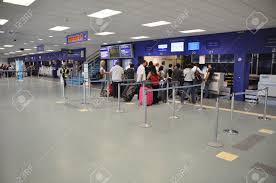
The flight to Qatar’s Hamed International Airport was described positively in the SWE as providing “capacity for 150,000 passengers a year, as well as significant freight capacity for Welsh exporters at around 10 tonnes a flight”.
In April 2017 BBC Wales’s Economics Correspondent Sarah Dickins said approvingly: “The new direct route from Cardiff to Doha is a reminder not just that the economy of Qatar is growing significantly but also that trade between Wales, the Arab world and beyond is increasing”.
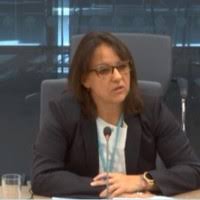
When the first flight from Doha was due, WalesOnline just reported the glowing words of Mr Lewis when he said: “This is a pivotal moment for Cardiff Airport, for Wales and the South West of England. The far reaching consequences of this service for passengers and businesses will be transformational”.
The same praising phrase was used by the present Chief Executive of CA Deb Bowen Rees who told the SWE: “The Qatar Airways service has been transformational…”

In interviews, the First Minister of Wales at the time, Carwyn Jones stated: “We would like to work with his excellency (Akbar Al Baker the Chief Executive of QA)“. He tweeted that he “welcomed” the first QA flight into CA and said it represented a “huge boost” for Wales.
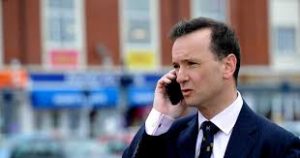
The then Welsh Secretary Alun Cairns informed us: “The new flight from Cardiff to Doha (Qatar’s capital) plugs our entrepreneurs straight into one of the most dynamic economies in the Middle East, and an airport which offers a further 150 global destinations”.
As with qualifying for the World Cup, the mainstream media’s response to the announcement of the new Qatar route was remarkable, and became a target of our satirical writer Edwin Phillips. But disturbing headlines have long swirled around Qatar’s actvities.
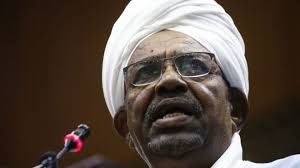
Apart from the World Cup, Qatar hosted, too, the ousted ruler of Sudan, Omar al-Bashir, who was convicted of corruption in a Sudanese court, but seems unlikely to be extradited to stand trial for overseeing genocide in Darfur.
It also kept silent as hundreds of thousands of Algerians protested, chanting “the people want the regime to go”.

Hundreds of millions of dollars in ‘aid’ money has been given, too, by Qatar to Hamas, the group which holds sway in the Gaza Strip, and which has been designated by the USA as a terrorist organisation.
Wales is not alone, however, where concerns have been raised.
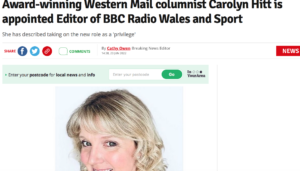 In England union activists have formed a coalition with groups such as Amnesty, Human Rights Watch and FairSquare, to submit a letter of protest to the Football Association (FA), about Qatar’s treatment of migrant workers used during the construction of football stadiums there.
In England union activists have formed a coalition with groups such as Amnesty, Human Rights Watch and FairSquare, to submit a letter of protest to the Football Association (FA), about Qatar’s treatment of migrant workers used during the construction of football stadiums there.
Yet the WM trumpeted the appointment of Ms Hitt to oversee football coverage from Qatar, as well as her being named as Editor of BBC Radio Wales (RW).


In this latter role she will have in her service RW news output where, presumably, neutral coverage is central, and she may want to attract listeners with views that are opposed to her own.
This, however, could be difficult for Ms Hitt, as she has publicly stated that she used to vote Labour (L), yet now supports PC, and tweeted: “I’ve voted @UK Labour all my life but today…I voted @Plaid_Cymru”.

In February 2020, she appeared, as well, as a keynote speaker at a conference of the Welsh independence organisation YesCymru (YC). There she said that she was “willing to pick up the ball and run” for independence.
This could clash with the corporation’s stated emphasis on impartiality after the Martin Bashir affair. The ‘Serota review’ declared: “The BBC’s duty to audiences means that the core editorial values of accuracy, impartiality, fairness, and editorial integrity must have primacy amongst wider BBC corporate values.”.
Ms Hitt’s appointment has made headlines in UK media outlets, too, with one story about it headlined: “Plaid Cymru’s Quiet Take Over of BBC Wales”.
 These disturbing facts might, also, endorse criticism of the corporation, that it is a hotbed of Welsh nationalism.
These disturbing facts might, also, endorse criticism of the corporation, that it is a hotbed of Welsh nationalism.
The leader of the Welsh Conservatives (WC) in the Welsh Parliament/Senedd Cymru (WP/SC), Andrew RT Davies, MS, said on social media, that the connection between BBC Cymru Wales (BBC CW) and PC, was “unhealthy”, because a number of top level journalists at BBC CW had had relationships with, or been members of, PC in the past, and (apart from the WC’s) other political parties in Wales have also accused the corporation of employing numerous supporters of the same party.

The former PC Chief Executive Ms Richards (who announced Ms Hitt’s appointment) was made Editor of BBC Radio Cymru herself (before Ms Hitt), as well as the Welsh language online service, Cymru Fyw, and went on to be given a very senior role at the corporation.
BBC CW proudly proclaim about her: “As Director, Wales, Rhuanedd leads the BBC Wales Executive Teams and has overall responsibility for the content strategy and editorial priorities for BBC Wales across all media platforms and services – radio, video and online – in both the English and Welsh languages”.
 Meanwhile, the political journalist Aled ap Dafydd became PC’s Director of Political Strategy and External Relations, and the PC Member of the Senedd (MS) for Ynys Mon Rhun ap Iorwerth was also formerly a leading political journalist at BBC CW, joining the corporation in 1994.
Meanwhile, the political journalist Aled ap Dafydd became PC’s Director of Political Strategy and External Relations, and the PC Member of the Senedd (MS) for Ynys Mon Rhun ap Iorwerth was also formerly a leading political journalist at BBC CW, joining the corporation in 1994.
The WM, however, ignored all of this, and focused purely on the fact that Ms Hitt worked for the newspaper, underlining her engagement at BBC CW, to take over as Editor of BBC Cymru Radio Wales (RW) , and to supervise its sport coverage, proclaiming excitedly: “An award-winning columnist has been appointed as the new Editor of BBC Radio Wales and Sport. Carolyn Hitt, who has written for the Western Mail for more than 30 years, will take up the new role in August.

“That will be in time to oversee the station’s coverage in the lead-up to the Wales football team playing in the World Cup 2022 in the autumn”.
There was, though, no reference to the country’s record on human rights, or her wearing her heart on her sleeve politically.
Qatar’s treatment of women has also faced criticism (and this may worry Ms Hitt, as well), with women’s rights there restricted, due to male guardianship law, and curtailments which have been influenced by Wahhabi Islam.
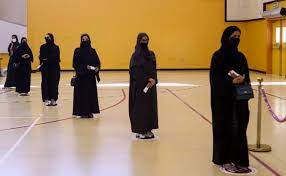
There is limited mixing between the sexes and Qatari women in public are largely expected to wear traditional clothing which typically consists of an Abaya and Shayla, both of which partially conceal their appearance.
Women in Qatar must obtain permission from their male guardians to marry, study abroad on scholarships, work in many government jobs, travel out of the country at all until certain ages, and to receive some forms of reproductive health care.
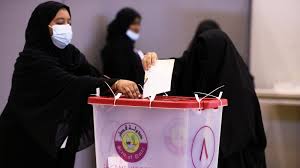
Last year NO women at all were elected in the nation’s first ever legislative poll.
Perhaps a poll should be conducted now, about whether Ms Hitt will oversee critical coverage of these issues on RW, or the fact that it is illegal to be gay like her in Qatar…
 The memories of our Editor, Phil Parry’s, astonishing 38 year award-winning career in journalism (including some of the stories he covered during his 23 years at the BBC) as he was gripped by the rare neurological disabling condition, Hereditary Spastic Paraplegia (HSP), have been released in a major book ‘A GOOD STORY’. Order the book now!
The memories of our Editor, Phil Parry’s, astonishing 38 year award-winning career in journalism (including some of the stories he covered during his 23 years at the BBC) as he was gripped by the rare neurological disabling condition, Hereditary Spastic Paraplegia (HSP), have been released in a major book ‘A GOOD STORY’. Order the book now!
Regrettably publication of another book, however, was refused, because it was to have included names.











